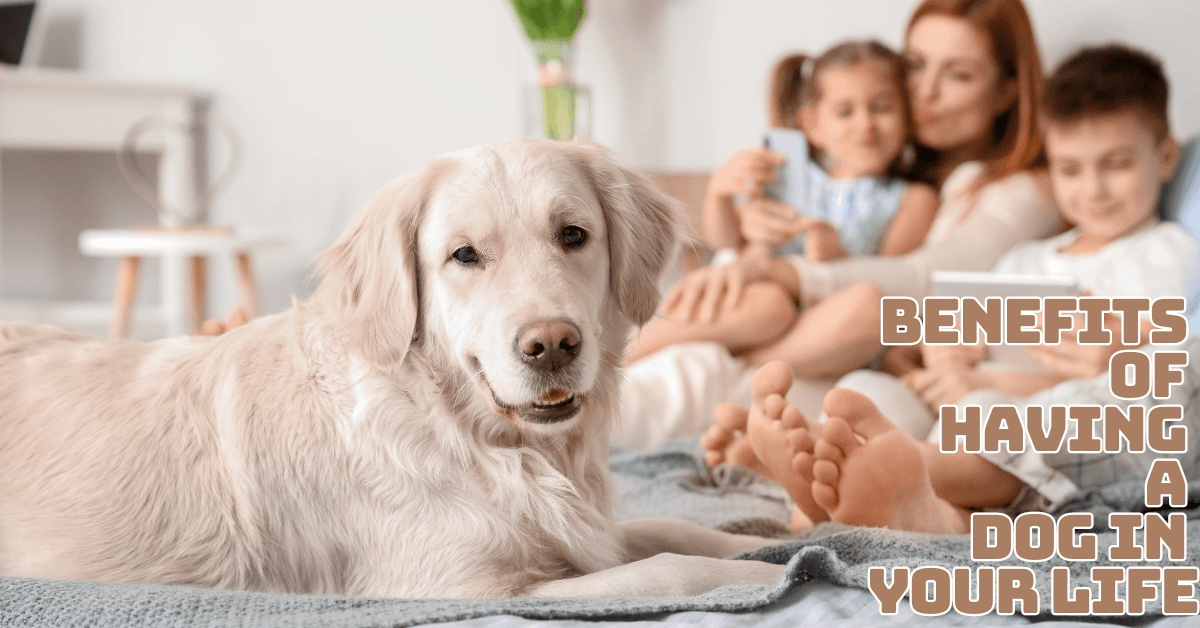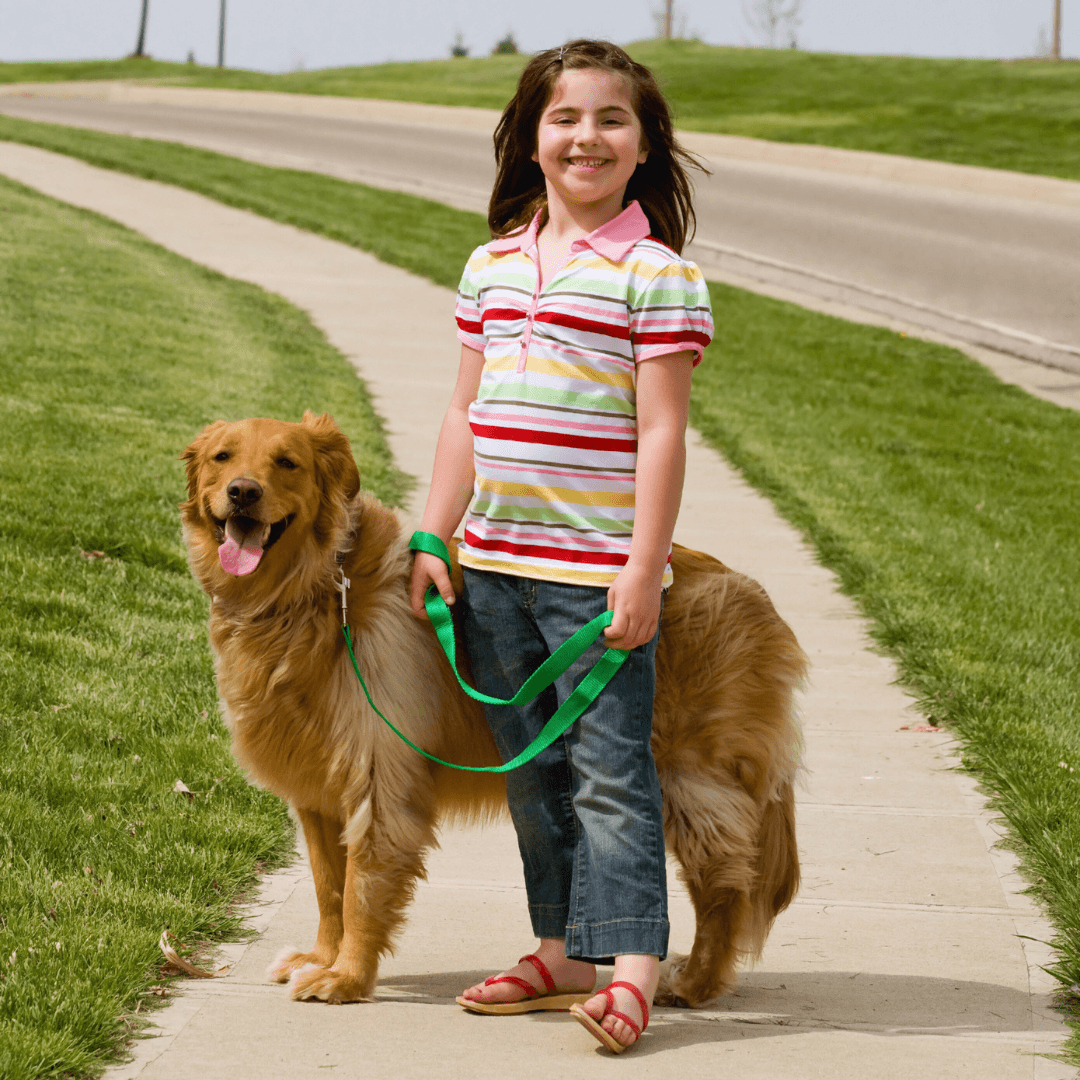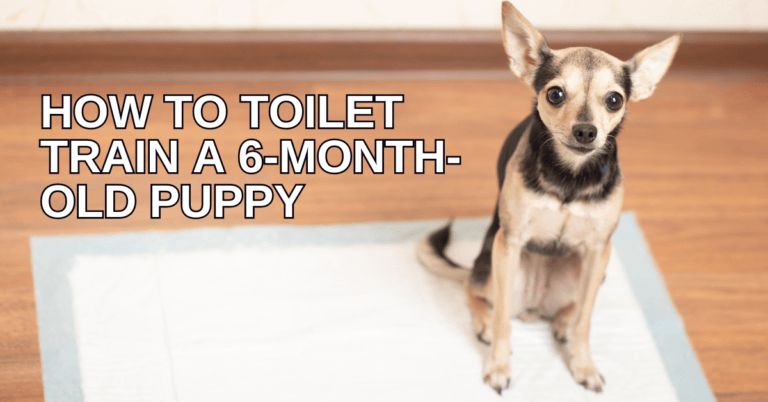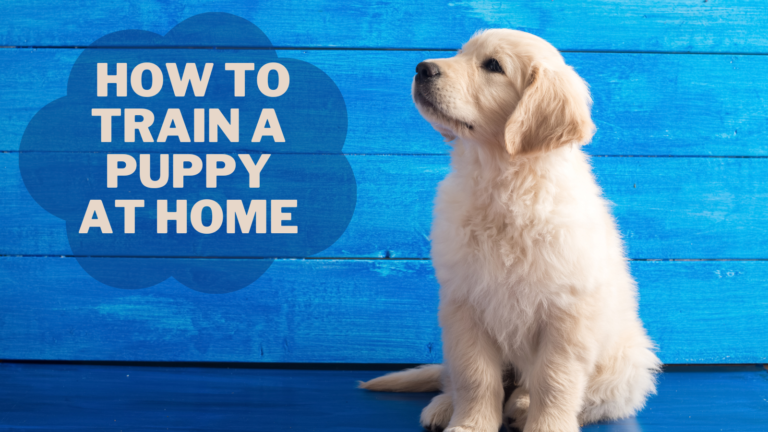Benefits Of Having A Dog In Your Life
Imagine a life filled with boundless joy, unwavering loyalty, and daily doses of laughter.
This is the gift and the countless benefits of having a dog in your life. Dogs offer more than just companionship.
They can boost your mood and enhance your physical health. Their presence can transform your daily routine and enrich your life.
Dive into the myriad benefits of having a dog and discover how these lovable pets can become the heartwarming source of happiness and well-being you never knew you needed.

Benefits Of Having A Dog In Your Life
Having a dog in your life means more than just having a pet—it’s about experiencing unconditional love, endless joy, and companionship.
Having a dog in your life brings numerous physical and emotional benefits. Here are some key advantages:

1. Companionship
Dogs are often called “man’s best friend” for good reason. The benefits of having a dog include its comforting companionship and the security it provides.
Their constant presence and affectionate nature make them exceptional companions, offering protection and belonging.
A dog's companionship can be incredibly comforting for those living alone or facing emotional challenges.
They sense your moods, offering a nuzzle or a wagging tail when you need it most. Their unwavering loyalty makes them reliable friends who are always there to provide support, love, and a sense of purpose.
2. Stress Reduction
Interacting with dogs has a calming effect that can significantly reduce stress. When a dog is petted, the “love hormone,” oxytocin, is released, and the stress-related hormone, cortisol, is lowered. This interaction soothes nerves and promotes relaxation and a sense of well-being.
Dogs can sense when you’re anxious or upset and often respond with comforting behaviours like nuzzling or leaning against you.
Their playful antics and unconditional affection can quickly lift your mood, providing natural stress-relief therapy.

3. Increased Physical Activity
Owning a dog is a natural motivator for staying active. Dogs require regular walks, playtime, and exercise, so you’re more likely to incorporate these activities into your daily routine.
Engaging in vigorous walks, running, or retrieve games keeps your dog content and healthy and enhances cardiovascular health, endurance, and general physical fitness.
Owning a dog benefits you and your pet because increased physical activity can control weight, lower blood pressure, and lower the risk of chronic illnesses.
4. Improved Mental Health
Spending time with dogs has a profound impact on mental health. Their playful energy and unconditional love can lift your spirits and alleviate sadness or anxiety.
Studies show that spending time with dogs increases levels of the “feel-good” neurotransmitters serotonin and dopamine, which help battle depression and anxiety.
Dogsling of purpose and routine is carnally helpful for people dealing with mental health challenges. Their nonjudgmental companionship offers comfort, making difficult days easier to navigate.
5. Social Interaction
Owning a dog can significantly boost your social life. Daily walks and visits to dog parks create natural opportunities to meet and interact with other dog owners. These casual encounters often lead to conversations, shared experiences, and lasting friendships.
Dogs act as social icebreakers, making it easier to connect with strangers and feel a sense of community.
They can also build confidence and encourage active participation in social settings for those who might otherwise struggle with social interactions.

6. Routine And Structure
Having a dog naturally brings structure to your day, highlighting the essential benefits of having a dog, such as the routine and discipline they help establish through regular feeding, walks, and playtime.
Dogs thrive on routine, needing regular feeding, walks, and playtime. This consistency keeps them happy and healthy and helps you establish a disciplined daily schedule.
Caring for a dog means committing to set times for activities, which can improve your time management and overall productivity.
For people who struggle with maintaining routines, a dog’s needs provide a gentle nudge to stick to a regular schedule, promoting stability and well-being.
7. Enhanced Security
Dogs can significantly enhance your sense of security at home, demonstrating one of the key benefits of having a dog in your life.
They are protective and have keen senses for detecting unusual sounds or movements. Numerous breeds are adept at spotting strange sounds or movements since they are inherently defensive and have good senses of smell and hearing.
Many dogs are natural protectors and can alert you to intruders or unusual activities. Their presence alone can act as a deterrent to potential burglars.
Even smaller dogs, though less physically intimidating, can provide an early warning system. Their presence alone can make you feel safer, adding extra protection and peace of mind.
8. Improved Cardiovascular Health
Owning a dog encourages regular physical activity, such as daily walks and playtime, which can significantly benefit cardiovascular health.
Regular exercise lowers the risk of heart disease, enhances heart health overall, and helps maintain healthy blood pressure.
Research indicates that dog owners often have lower cholesterol and triglyceride levels than non-dog owners.
The combination of physical activity, reduced stress levels, and emotional support provided by dogs contributes to better heart health, making them wonderful companions for a healthy lifestyle.
9. Boosted Immune System
Being around dogs can strengthen your immune system. Exposure to dogs and their environment helps your body build a more robust defence against illnesses.
Research indicates that children who own dogs are less likely to develop allergies or asthma. This is probably because early exposure to different microorganisms and allergens helps the immune system establish tolerance.
This increased exposure to beneficial bacteria strengthens immune responses, leading to a lower incidence of respiratory issues and allergies.

10. Increased Joy And Laughter
Dogs have a unique way of brightening our days with their playful and often silly antics. Their boundless energy and endearing behaviours, like chasing their tails or engaging in playful fetch, can easily lift your spirits and make you laugh.
Their joyful presence brings a sense of fun and light-heartedness to daily life, offering endless entertainment.
This constant source of amusement boosts mood and contributes to overall happiness, making each day with a dog more enjoyable and fulfilling.
11. Teaching Responsibility
Having a dog in the family illustrates the significant benefits of having a dog in your life. These include teaching children essential life skills such as responsibility, empathy, and care through daily tasks like feeding, grooming, and exercising the dog.
Kids learn to manage daily tasks such as feeding, grooming, and exercising the dog, fostering a sense of duty and accountability.
Caring for a pet also encourages empathy, as children become attuned to the dog's needs and feelings.
This commitment helps build strong, positive character traits and teaches valuable lessons about responsibility and compassion through hands-on experience.

12. Assistance With Therapy And Rehabilitation
Dogs offer emotional support and drive, vital in treatment and rehabilitation. In physical therapy, their presence can encourage patients to exercise and maintain a positive outlook.
For emotional trauma, therapy dogs offer comfort and companionship, helping to ease anxiety and depression.
Their intuitive nature helps them connect with individuals, creating a supportive environment that aids recovery.
Overall, the bond with a therapy dog enhances well-being, speeds up healing, and fosters resilience.
13. Strengthened Family Bonds
Caring for a dog as a family fosters teamwork and unity. Shared responsibilities like feeding, walking, and grooming create opportunities for family members to work together and support each other. This collaborative effort strengthens relationships and encourages open communication.
The daily routines and experiences with the dog help build trust and deepen connections among family members, making the household more cohesive and supportive.
As everyone contributes to the dog’s care, the sense of shared purpose enhances family bonds and brings everyone closer.
14. Motivation For Healthy Habits
Dogs act as powerful motivators for maintaining healthy habits. Their daily needs, like regular walks and playtime, encourage owners to exercise consistently and follow a structured routine.
This commitment to your dog’s well-being often translates into improved personal health habits, such as a better diet and increased physical activity.
Taking on the responsibilities of dog ownership might encourage you to lead a better lifestyle, which will help your dog and you by establishing beneficial patterns.
15. Natural Therapy For PTSD
For individuals with PTSD, dogs offer valuable therapeutic support by providing grounding and emotional stability.
Their presence helps manage symptoms such as anxiety and flashbacks, acting as a calming influence during distressing episodes.
The constant companionship and intuitive nature of therapy dogs can soothe panic attacks, reduce emotional triggers, and foster a sense of safety.
Dogs help persons who have PTSD rehabilitate and have better mental health overall by providing a safe and comforting environment.

16. Boosted Confidence In Social Settings
Having a dog by your side can significantly boost your confidence in social settings. Dogs naturally attract attention and curiosity, making them excellent icebreakers and conversation starters.
Their presence can ease the pressure of initiating interactions, helping you feel more relaxed and approachable.
People are often more willing to engage when a dog is involved, whether at the park, in a café, or at a social event.
This increased comfort can lead to more positive social experiences and build your confidence.
17. Positive Influence On Work-Life Balance
Owning a dog naturally encourages a healthier work-life balance. It showcases the benefits of having a dog in your life, such as prompting regular breaks for walks, feeding, and playtime that help reduce burnout and improve focus.
These breaks offer a chance to step away from work, stretch, and clear your mind, which helps reduce burnout and improve focus.
A dog’s need for daily exercise also encourages you to prioritize physical activity and relaxation, making it easier to maintain a balanced lifestyle.
Their presence can remind you to disconnect from work, spend quality time outdoors, and embrace a more holistic approach to well-being.
18. Enhanced Life Satisfaction
A dog's companionship can significantly enhance life satisfaction. Their unconditional love, loyalty, and playful nature bring daily joy and warmth, fostering a positive outlook.
The routine of caring for a dog, along with the shared experiences of play, exercise, and affection, creates a sense of purpose and fulfillment.
This bond can alleviate stress and loneliness, providing emotional stability and happiness. Dogs help cultivate a more content, balanced, and enriched life experience.

19. Enhanced Safety For Vulnerable Individuals
Dogs can be invaluable companions for vulnerable individuals, such as those living alone or older adults.
Their protective instincts help deter intruders and alert their owners to potential dangers, providing security.
Even small breeds can serve as effective warning systems, barking at unfamiliar sounds or visitors. Beyond physical safety, a dog's presence offers emotional reassurance, reducing feelings of fear or isolation.
This dual role of protector and companion makes dogs a comforting presence, enhancing overall safety and well-being.
How To Choose The Right Dog For You
Choosing the right dog is an important decision that involves carefully considering various factors to ensure a happy, healthy, and compatible match for you and the dog.
Here's a detailed guide to help you find the perfect canine companion:
1. Assess Your Lifestyle
Activity Level
Consider how active you are each day. More sedentary breeds, like Bulldogs or Shih Tzus, are happy with moderate exercise, but active types, like Border Collies and Labrador Retrievers, need a lot of both.
Time Commitment
Dogs need time for training, exercise, and companionship. If you have a busy schedule, consider lower-maintenance breeds or adult dogs that are already trained.
Living Space
Evaluate your living environment. Large, active dogs may struggle in small apartments, while smaller breeds or low-energy dogs can adapt well to limited spaces.
2. Consider Size And Breed Characteristics
Size Preferences
Consider whether you prefer a small, medium, or large dog. Larger breeds may need more space and food, while smaller breeds can be easier to handle and travel with.
Breed Traits
Research the temperament, energy level, grooming needs, and health issues common to the breeds you're interested in.
For example, Poodles are hypoallergenic and intelligent, while Beagles are friendly but prone to barking.
3. Evaluate Energy Levels
High-Energy Breeds
These are appropriate for active people who appreciate outdoor activities like running, hiking, or agility training. Australian Shepherds and Siberian Huskies are examples.
Moderate To Low-Energy Breeds
It is better for those who prefer leisurely walks or have less time for intense exercise. Breeds like Basset Hounds and Cavalier King Charles Spaniels fit this category.
4. Consider Grooming And Care Needs
Coat Type
Long-haired breeds may require daily grooming, while short-haired breeds typically need less maintenance. Breeds like Poodles and Schnauzers need regular professional grooming.
Allergies
If you or a family member has allergies, consider hypoallergenic breeds like Bichon Frises or Portuguese Water Dogs, which produce less dander.
5. Think About Age And Training
Puppies
Puppies require time, patience, and training, including housebreaking and socialization. They are a good choice for shaping a dog’s behaviour from a young age.
Adult Dogs
Adult dogs often come with training and established temperaments, making them a good choice for those who prefer a dog with a known personality.
Senior Dogs
Senior dogs are calmer and often make great companions for less active individuals, but they may have health issues requiring special care.
6. Consider Temperament And Behaviour
Family-Friendly
If you have children, choose breeds known for their gentle and patient nature, such as Golden Retrievers or Boxers.
Guarding And Protection
For those seeking security, breeds like German Shepherds or Rottweilers can be protective and alert.
Social Needs
Some dogs, like Beagles or Cocker Spaniels, are highly social and require lots of human interaction. Ensure you have time to meet their emotional needs.
7. Assess Your Budget
Initial Costs
Consider the cost of purchasing or adopting the dog and initial expenses like vaccinations, spaying/neutering, and supplies.
Ongoing Costs
These include food, grooming, vet visits, insurance, and other expenses. Larger dogs generally cost more to feed, while some breeds may have higher medical costs due to genetic conditions.
8. Meet And Interact With The Dog
- Give the dog some time to get to know you before deciding. Observe its behaviour, energy level, and response to you and other family members.
- If you're adopting, ask questions about the dog's history, temperament, and potential health issues.
By carefully weighing these characteristics, you can choose the ideal dog for your lifestyle, interests, and personality, guaranteeing a happy and satisfying friendship.
Unleash Your Dog's “Hidden Intelligence”
Did you know that a simple training strategy developed by one of America's top professional dog trainers can reveal your dog's hidden intelligence?
This approach eliminates bad behaviour while helping create the well-behaved, obedient pet you've always dreamed of.
Imagine a dog that easily listens, behaves, and follows commands—at home or outdoors. This method taps into your dog's natural intelligence, making the training process fun and effective.
It's not just about discipline. It’s about understanding your dog deeper, strengthening your bond and making your life more enjoyable.
If you’re ready to experience this transformation for yourself, I highly recommend trying this Brain Training For Dogs. It’s easy to follow and proven to bring long-lasting results for a happier, healthier dog.
>>>Start your dog’s training journey here!<<<
Conclusion
In conclusion, the many benefits of having a dog include improved physical health, mental well-being, and enhanced social connections, all of which contribute to a happier and more fulfilling life.
Their unwavering companionship and unconditional love create a source of joy and emotional support, helping to combat stress and loneliness.
By choosing the right dog for your lifestyle, you can experience the transformative power of this incredible bond, leading to a happier, more fulfilling life.
I trust you enjoyed this article on the Benefits Of Having A Dog In Your Life. Please stay tuned for more blog posts soon. Take care!
JeannetteZ
FAQ
1. Can A Dog Help With Social Interaction?
Yes, dogs can be great icebreakers and help you connect with other dog owners. Dogs often lead to new friendships and social interactions at the dog park or on daily walks.
2. How Does Having A Dog Benefit Children?
Dogs can teach children responsibility, empathy, and compassion. They also offer a sense of security and can be great playmates, enhancing children's social and emotional development.
3. Are There Any Benefits To Having A Dog For Older Adults?
For elderly individuals, dogs provide companionship, reduce feelings of loneliness, and encourage physical activity. They also offer a sense of purpose and routine, benefiting overall well-being.
4. How Does A Dog Affect Home Security?
Many dogs are natural protectors and can alert you to intruders or unusual activities. Their presence alone can act as a deterrent to potential burglars.
>>>Please click here to read my article on A Full Overview Of Dogs And Their Activity<<<
>>>Brain Training For Dogs Review<<<
My #1 Dog Training Recommendation
Your Opinion Is Important To Me
Do you have thoughts, ideas, or questions? I would love to hear from you. Please leave me your questions, experience, and remarks about this article on the Benefits Of Having A Dog In Your Life in the comments section below. You can also email me at Jeannette@Close-To-Nature.org.
Disclosure
This post may contain affiliate links. I earn from qualifying purchases as an Amazon Associate and other affiliate programs. Please read my full affiliate disclosure.
You might also enjoy these blog posts:
9 Secret Techniques To Growing A Cherry Tree In Container
9 Steps To Growing Cantaloupe In Containers
Simple Ways To Grow Mulberries In Pots
9 Tips To Growing Fig Trees In Containers
10 Steps To Growing Blueberries In Containers







